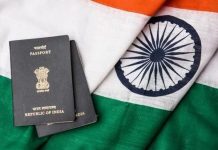Article 21 of Indian Constitution provides few sparkles of hope to the lives of arrested, undertrials and convicts. The treatment of such people has to be humane and in the manner prescribed by law. In Maneka Gandhi v. Union of India {AIR 1978 SC 597} the Supreme Court held that State and for that matter the police as its principal law enforcing agency have the undoubted duty to bring offenders to book. Even so, the law and procedure adopted by the State for achieving this laudable social objective have to conform to civilized standards. The procedure adopted by the State must, therefore, be just, fair and reasonable.
I have been asked this question many times, “Why do criminals need rights when they have criminally violated rights of others?” Well, criminal jurisprudence is based on studies on criminals’ behaviour, impact of crimes on victims, criminals and society etc.
The primary purposes of criminal law are Deterrence, Retribution and Protection. Reformation & Rehabilitation are the silent purposes to improve the hues of society. “Once Criminal, Always Criminal” can’t sustain the test of reasonableness, wisdom and conscience. All crimes are not same and so aren’t criminals. Gravity, nature and involvement define which yardstick of jurisprudential law is to be applied. However, application of yardstick is based on discretion to be exercised within the limit of State law.
In my everyday endeavour to make our society a better place to live, I am launching Series – ‘Know Your Rights’, in which I would provide elemental information pertaining to varied subjects and intriguing aspects of law. Today I am writing about Rights of an Arrested Person.
The powers for making an arrest by police are subject to restraints and judicial supervision and scrutiny to protect the fundamental right to life under Article 21 of the Constitution of India of all persons. Imposition of such restraint is clearly the recognition of rights of the arrested person. Chapter-V of the Criminal Procedure Act (CrPC) contains provisions relating to arrest of persons, restrains and judicial supervision & scrutiny.
RELEVANT LEGAL PROVISIONS QUA IMPORTANT RIGHTS OF AN ARRESTED PERSON:
i. WHEN POLICE IS ARRESTING WITHOUT WARRANT: Under Section 41 of CrPC wide powers are conferred on police to arrest, mainly in cognizable offences, without having to go to Magistrate for obtaining warrant of arrest. There can be no legal arrest if there is no information or reasonable suspicion that the person has been involved in a cognizable offence or commits offence(s), specified in Section 41.
The burden is on the police officer to satisfy the court before which the arrest is challenged that he has reasonable ground of suspicion. In exception to the above, Section 45 of CrPC provides that members of Armed Forces cannot be arrested for anything done in discharge of official duties, except after obtaining consent of the central government.
ii. ARREST HOW MADE – Section 46 of CrPC envisages modes of arrest i.e. submission to custody, touching the body physically or confining the body. Arrest is restraint on personal liberty. Unless there is submission to custody, by words or by conduct, arrest can be made by actual contact. In case force is required, it should be no more than which is justly required and this section does not give a right to cause death of a person, who is not accused of an offence punishable with the death or with imprisonment for life.
Where a woman is to be arrested, unless the police officer is a female, the police officer shall not touch the person of the woman for making an arrest and arrest would be presumed on her submission to custody on oral intimation. After sunset and before sunrise, no woman can be arrested, except in exceptional circumstances and upon prior written permission from the local Magistrate.
iii. NO UNNECESSARY RESTRAINT – Section 49 of CrPC provides that there should be no more restraint than is justly necessary to prevent escape i.e. reasonable force should be used for the purpose, if necessary; but before keeping a person under any form of restraint there must be an arrest. Restraint or detention without arrest is illegal.
iv. RIGHT TO KNOW THE GROUNDS OF ARREST: Section 50(1) CrPC provides, “every police officer or other person arresting any person without a warrant shall forthwith communicate to him full particulars of the offence for which he is arrested or other grounds for such arrest.” Apart from the provisions of CrPC, Article 22(1) of Constitution of India provides, “No person who is arrested shall be detained in custody without being informed, as soon as may be, of the grounds of such arrest nor shall he be denied the right to consult, and to be defended by, a legal practitioner of his choice.”
Based on decisions of Supreme Court in Joginder Kumar v. State of UP, (1994) 4 SCC 260 and D.K. Basu v. State of West Bengal, (1997) 1 SCC 416 substantial amendments have been enacted in Section 50-A of CrPC in the year 2006 making in obligatory on the part of the police officer making an arrest to inform the friend, relative or any nominated person of the arrested person about his arrest, inform arrested person of his rights and make an entry in the register maintained by the police. The magistrate is also under an obligation to satisfy himself about the compliance of the police in this regard.
v. PERSON ARRESTED TO BE INFORMED OF THE RIGHT TO BAIL – Section 50(2) of CrPC provides that any person arrested without warrant shall be immediately informed of the grounds of his arrest, and if the arrest is made in a bailable case, the person shall be informed of his right to be released on bails. Section 50 is mandatory and carries out the mandate of Article 22(1) of the Constitution of India.
vi. SEARCH OF ARRESTED PERSON- Section 51 of CrPC allows a police officer to make personal search of arrested persons. With regard to the provisions of this section, the reference may be made to Article 20(3) of the Constitution of India which is a guarantee to the accused against self-incriminating testimonial compulsion. Though an accused cannot be compelled to produce any evidence against him, it can be seized under process of law from the custody or person of the accused by the issue of a search warrant.
vii. MEDICAL EXAMINATION OF ARRESTED PERSON – Section 54 of CrPC provides for compulsory medical examination by a medical officer in service of central or state government, or by registered medical practitioner, upon non-availability of such medical officer. Female arrestees can only be examined by female medical officer or registered medical practitioner.
However, Section 53 & 53A of CrPC provide if there are reasonable grounds for believing that an examination of arrestee, on a charge of committing rape or other offence, will afford evidence so as to the commission of such offence, it shall be lawful to medically examine blood, blood stains, semen, hair samples, finger nail clippings by use of modern & scientific techniques including DNA and such other tests, which the medical officer thinks necessary in a particular case, acting at the request of a police officer.
viii. PERSON ARRESTED NOT TO BE DETAINED MORE THAN 24 HOURS – The constitutional and legal requirements to produce an arrested person before a Judicial Magistrate within 24 hours of the arrest must be scrupulously observed (Khatri v. State of Bihar, AIR 1983 SC 378). Section 57 is concerned solely with the question of the period of detention. The intention is that the accused should be brought before a magistrate competent to try or commit, with the least delay. The right to be taken out of police custody by being brought before a Magistrate is vital in order to prevent arrest and detention, with a view to extract confession or as a means of compelling people to give information.
ix. RIGHT TO FREE LEGAL AID – while after the arrest, a person shall have the right to consult and to be defended by a counsel of his choice; arrestee shall be entitled to free legal aid. Apart from ensuring a fair prosecution, a society under the Rule of law has also a duty to arrange for the defence of the accused, if he is too poor to do so. Free legal aid to persons of limited means is a service which the modern State, in particular a welfare state, owes to its citizens (Law Commission of India, 14th Report, Vol. I, pp 587-600).






























